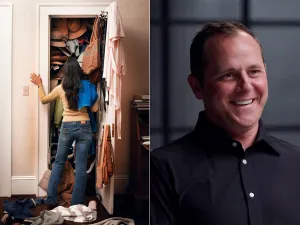The movement that began as Occupy Wall Street three weeks ago has spread to hundreds of cities across the nation and the world, with protesters adopting many of the tactics and demands used at Zuccotti Park. In Los Angeles, hundreds of people are living on the lawn in front of City Hall in a protest directly inspired by the original. But participants say they don’t see their protest as Occupy Wall Street West.
“This has nothing to do with Wall Street for me,” says Steven Releford, 22, while sharing a joint with six others in the tent city outside City Hall. His friends nod in agreement.
But unlike many city-specific protests, Occupy Los Angeles isn’t about local issues, either. And unlike New York City mayor Michael Bloomberg, who accused protesters of trying to “take jobs away from people working in this city,” L.A. officials are supporting the demonstrators. So what are they protesting? The participants are united by frustrations with big-picture inequities in the global financial system, of course, and many cite corrupt connections between big government and big business. Unlike their peers in New York and Washington, Los Angeles protesters can’t occupy the areas where such deals are struck, but they say it’s important to draw attention to the effects on the rest of the world.
“It’s all personal,” says José Hernandez, 21. He was born and raised in Hollywood and quit his job as a photo technician to come live in the tent city. “We’ve seen it within our families, communities and people we know. We all deal with the same bullshit. That’s why we are the 99 percent.”
The Los Angeles group is eclectic, with people of all ages and races wearing everything from suits and ties to ratty t-shirts. David Traub, 48, says he’s here on behalf of friends who have lost their homes or are struggling with debt. “Nationwide, people feel it,” says Traub, a 48-year-old electrician wearing a Pirates of the Caribbean t-shirt. “It’s not really a blame game, it’s a change game. The New Deal basically said a man who has a job will have a fair pay. The new deal we have today is, you’re lucky you got a job.” But what will actually come of this protest? “To be honest with you, I don’t know,” he says.
Like their peers on Wall Street, the Los Angeles protesters have been criticized for not having a clear message: demands include free college education, open borders migration, and immediate debt forgiveness, among many other pie-in-the-sky hopes that have no chance of ever becoming law. But the general theme—led by a desire to change policies that benefit major corporations and wealthy individuals—are the same throughout the crowd in Los Angeles as they are among the initial 300 Occupy Wall Street protesters.
“How can you complain about our country and do nothing? Even if this is small, I’m not just sitting at home watching TV,” says Nicholas B., 25. “I don’t think a lot will happen, but maybe the government will start doing something more.”
What, if anything, that “something more” will look like remains to be seen, but it’s encouraging that people outside of New York and Washington see this as their fight too. The corporation giants and heads of state may be untouchable for now, but ordinary people communicating that they’re fed up is an important first step. “[It’s about] just standing up and realizing the power of people is stronger than the people in power,” says Jessica O’Donnell, 23.







